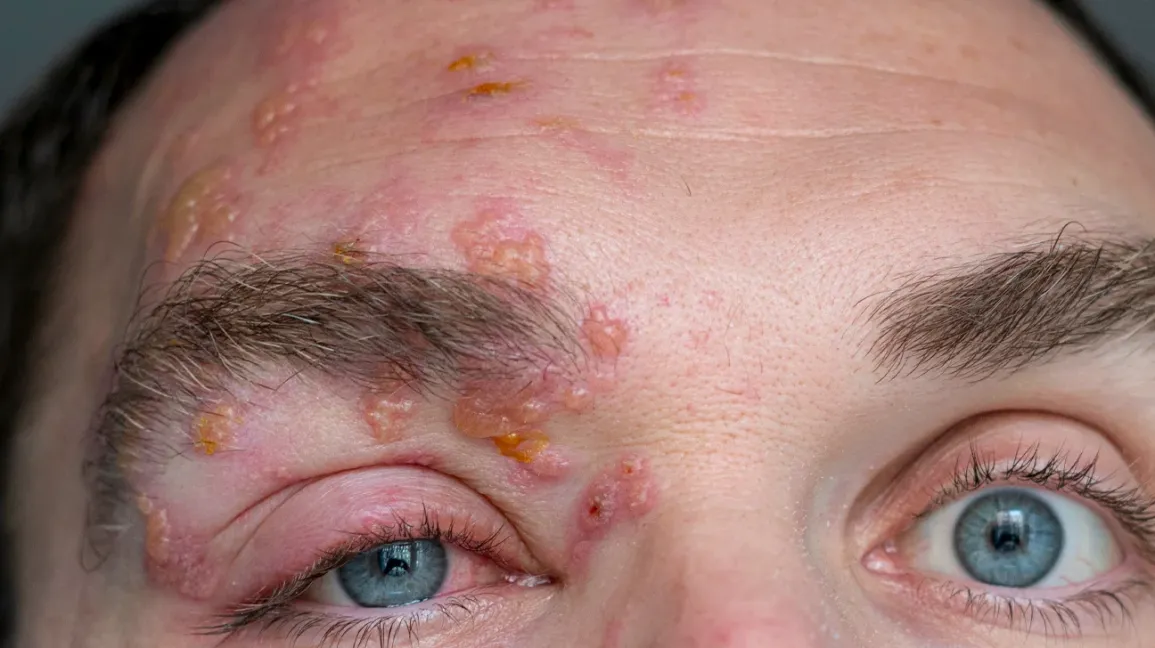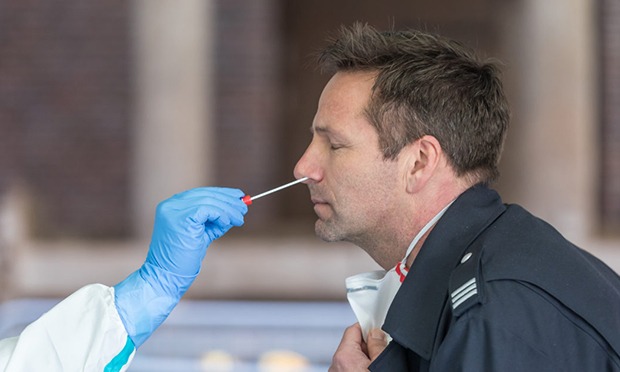
Do you believe you can get shingles without having had chicken pox? It’s a common misconception! Shingles, a painful skin rash caused by the varicella-zoster virus, is often misunderstood. Many people think that you can only get shingles if you’ve previously had chicken pox, but is that really the case? Let’s delve into this intriguing topic and uncover the shocking truth about shingles.
What is Chicken Pox?
Chicken pox is a highly contagious viral infection characterized by itchy, blister-like rashes. It’s primarily known for affecting children, though adults can contract it too.
Causes and Symptoms
The varicella-zoster virus is responsible for chicken pox. Symptoms include fever, loss of appetite, headache, and the distinctive red spots that turn into fluid-filled blisters.
How the Varicella-Zoster Virus Works
Once infected, the virus remains dormant in the body’s nerve tissues even after recovery. This dormant state is crucial to understanding the connection between chicken pox and shingles.
What is Shingles?
Shingles, also known as herpes zoster, is a reactivation of the varicella-zoster virus. It leads to a painful rash, typically on one side of the body or face.
Causes and Symptoms
Shingles arise when the dormant virus reactivates. Symptoms include burning pain, sensitivity to touch, a red rash, and fluid-filled blisters. Some people may also experience fever, headache, and fatigue.
How the Varicella-Zoster Virus Reactivates
The virus can reactivate years or even decades after the initial chicken pox infection, often due to a weakened immune system or stress.
The Connection Between Chicken Pox and Shingles
The Role of the Varicella-Zoster Virus
The same virus causes both chicken pox and shingles. After an individual recovers from chicken pox, the varicella-zoster virus lies dormant in the nervous system.
How Chicken Pox Leads to Shingles Later in Life
When the body’s immune system weakens, whether due to aging, stress, or illness, the virus can reactivate, causing shingles.
Can You Get Shingles Without Having Chicken Pox?
Common Beliefs and Myths
A widespread belief is that one cannot get shingles without having had chicken pox. This belief stems from the understanding that shingles is a reactivation of the chicken pox virus.
Scientific Explanation
Technically, shingles cannot occur without a prior chicken pox infection because it is the reactivation of the dormant varicella-zoster virus. However, some individuals might not remember having chicken pox, especially if they had a mild or asymptomatic case.
What are the differences between shingles and chickenpox?
Shingles and chickenpox are both caused by VZV, but they are not the same illness.
Chickenpox is a highly contagious disease. It typically occurs in children, but anyone can get it.
Shingles is also known as herpes zoster. It is a viral infection caused by the reactivation of VZV that has remained in the person’s body after they have recovered from chickenpox. It commonly affectsTrusted Source older adults and is rare in children.
Unlike a chickenpox rash that typically spreads throughout the body, a shingles rash spreads through a limited area. The blistery rash follows one or two adjacent stripes of skin area supplied by a nerve, typically on one side of the body or face.
Shingles can be painful and may cause complicationsTrusted Source, such as vision loss. However, it is rarely life threatening.
In contrast, chickenpox can be more serious and potentially life threateningTrusted Source. Some serious complications of chickenpox includeTrusted Source:
However, the Centers for Disease Control (CDC)Trusted Source state that healthy people are at a lower risk of developing complications from chickenpox. Furthermore, the risk of death is much lower due to the success of the chickenpox vaccine program.

Can someone who has not had chickenpox get shingles?
A person can get VZV, which causes chickenpox, from someone with shingles if they have never hadTrusted Source chickenpox or the chickenpox vaccine.
People cannot get shingles without having recovered from chickenpox. The reactivation of VZV in a person’s body causes shingles.
There is also a low risk of a person developing shingles after having direct contact with a shingles rash.
The chickenpox virus is more likely to spread VZV to others than shingles.
What are the risk factors for shingles and chickenpox?
People who have never had chickenpox or received the chickenpox vaccine have the highest riskTrusted Source of contracting chickenpox regardless of ageTrusted Source.
Chickenpox is highly contagious and spreads very easily, especially in close contact areas such as daycares and schools. A person with chickenpox affects up to 90%Trusted Source of the people in close proximity who are not immune to chickenpox.
If a child is in close proximity to another child with chickenpox, they may still be protected if they receive a chickenpox vaccination within 3–5 daysTrusted Source of exposure. One dose of the vaccine is 85%Trusted Source effective at preventing varicella infection and almost completely protects a child from severe infection.
The following individuals are at a high riskTrusted Source of severe varicella infection:
- people who are immunocompromised, such as those with leukemia and lymphoma, as well as individuals taking immunosuppressive medications such as steroids and chemotherapy drugs
- newborn children of parents with varicella, 5 days prior and up to 2 days after delivery
- premature babies
- pregnant people
Once a person has had chickenpox, they will have lifelong immunity, meaning they will not get chickenpox again.
About 1 in 3Trusted Source Americans will get shingles in their lifetime. Everyone who has had chickenpox or has had a varicella vaccination is at risk of getting shingles.
However, the risk of developing shingles increases as a person’s VZV-specific cell-mediated immunity declines. This decline in immunity may be due to increasingTrusted Source age and medical conditions and medications that can affect a person’s immune system. These include:
- cancer, specifically lymphoma and leukemia
- HIV
- immunosuppressive drugs, including those taken by solid organ and bone marrow transplant recipients
It is also important to note that females are more likely to develop shingles than males. Furthermore, Black people are about 50% less likelyTrusted Source to develop shingles than white people.
Treatment
Both shingles and chickenpox have no cure and tend to be self-limiting. Most people can allow the infections to run their course and wait for them to resolve entirely over several days without complications.
Chickenpox tends to resolve within 4–7 daysTrusted Source, while shingles typically lasts 2–4 weeksTrusted Source. People may considerTrusted Source taking non-aspirin medications, such as acetaminophen, to help manage fever from chickenpox. Doctors may also prescribe antihistamines to help relieve itching.
Antiviral medications for shingles, including acyclovir, famciclovir, and valacyclovir, can shortenTrusted Source the length and intensity of the condition. Furthermore, antiviral medications are most effective when taken within 72 hours after a rash appears.
Doctors may also advise a person takes medications to relieve pain and discomfort caused by shingles.
Calamine lotion, wet compresses, and cool baths with colloidal oatmeal or baking soda can also help reduce itching from chickenpox and shingles.
Prevention
The best prevention against chickenpox and shingles is receiving a vaccine. The recombinant zoster vaccine (RZV), called Shingrix, can protectTrusted Source a person against shingles, post-herpetic neuralgia (PHN), and other complications.
The CDC recommends Shingrix for healthy adults 50 years and olderTrusted Source. It also recommends that adults aged 19 and above with weak immune systems be vaccinated.
The CDC also advises that children, adolescents, and adults who have never had chickenpox should receive 2 dosesTrusted Source of the chickenpox vaccine. There are two vaccines for chickenpox available in the United States: Varivax and ProQuad.
When to consult a doctor
The CDC recommends that a person who has chickenpox or shingles should seek prompt treatment if they:
- are at a higher risk of complications. This may be due to:
- pregnancy
- having a weakened immune system
- being younger than 1 year or older than 12 years
- have a high fever that rises above 102°F (38.8°C) or lasts longer than 4 days
- have a rash that may be infected — for example, very red, warm, tender, or leaking pus
- have difficulty walking
- have a severe cough
- have a stiff neck
- vomit frequently
- have difficulty waking up or feel confused
- have difficulty breathing
- have severe abdominal pain
- have a rash with bleeding or bruising
Conclusion
Shingles and chickenpox are two conditions caused by VZV. However, their course and symptoms are not the same.
Shingles can spread VZV, which causes chickenpox. In rare cases, a person may contract shingles from another person with shingles.
Not everyone is at risk of getting chickenpox. Those who have never had it or have not received a vaccine are most likely to get it.
The best way for people to prevent chickenpox and shingles is to get vaccinated. A person should consider speaking with a healthcare professional if they are at higher risk of complications from either condition.








